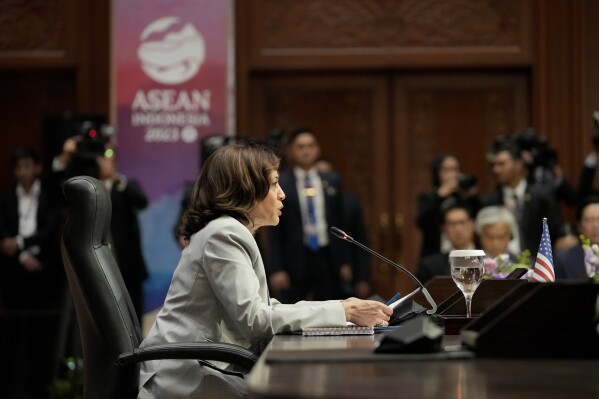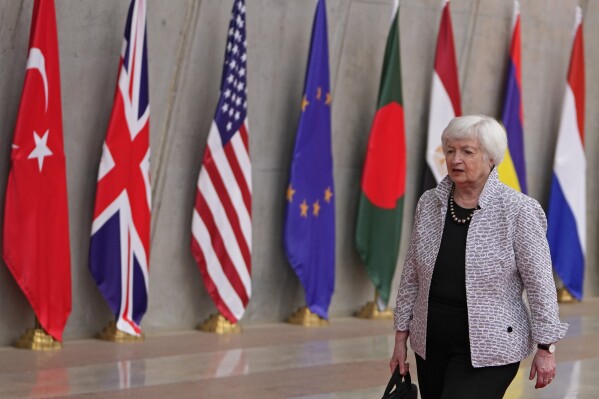Australia and China open their first high-level dialogue in 3 years in a sign of a slight thaw
TAIPEI, Taiwan (AP) — Australia and China opened their first high-level dialogue in three years Thursday in a sign of a slight thaw to relations between countries that have clashed on everything from human rights to COVID-19 origins to trade.
“I welcome the recent positive developments in the bilateral relationship, but we know that there is more work to do,” said Craig Emerson, the head of the Australian delegation and a former trade minister.
The dialogue being held in Beijing will focus on trade, people-to-people links and security.
China’s former Foreign Minister Li Zhaoxing said the two countries should work together, but added that “We should adhere to the liberalization of trade and jointly oppose the Cold War mentality, bloc confrontation and trade protectionism.”
 In Southeast Asia, Harris says ‘we have to see the future’
In Southeast Asia, Harris says ‘we have to see the future’
 Everyone’s talking about the Global South. But what is it?
Everyone’s talking about the Global South. But what is it?
 War sanctions against Russia highlight growing divisions among the Group of 20 countries
War sanctions against Russia highlight growing divisions among the Group of 20 countries
Beijing often uses those terms in opposing the actions of Western countries, particularly the U.S.
During the freeze in relations with Beijing, Australia formed a nuclear partnership with the U.S. and the United Kingdom that enables Australia to access nuclear-powered submarines.
Australia’s current Foreign Minister Penny Wong has sought to stabilize the two countries’ relationship since her party won elections last year.
On Thursday, Australia’s Prime Minister Anthony Albanese also met with China’s Premier Li Qiang at the sidelines of the Association of Southeast Asian Nations summit in Indonesia, describing the engagement as positive.
“I told Premier Li that we would continue to cooperate where we can, disagree where we must and engage in our national interest,” Albanese said to reporters, according to a statement from his office, saying he would visit China later this year at the invitation of China’s leader Xi Jinping.
China’s and Australia’s relations sank to low depths during the pandemic. The previous Australian government passed laws that ban covert foreign interference in domestic politics, barring Chinese-owned telecommunications giant Huawei from rolling out Australia’s 5G network due to security concerns, and for calling for an independent investigation of the COVID-19 pandemic.
In response, China effectively blocked out Australian barley in 2020 by imposing an 80.5% tariff, widely regarded in Australia as punishment. China also put tariffs on Australian wine, beef, and coal, as well as other products. China recently lifted the tariff against barley.
Australia is also hoping to see a breakthrough in the cases of five detained Australians in China, among which is Cheng Lei, a journalist who has been imprisoned for three years.
“We continue to advocate for positive progress on the cases of Australians detained in China,” Emerson said.
___
Find more of AP’s Asia-Pacific coverage at https://apnews.com/hub/asia-pacific
Disclaimer: The copyright of this article belongs to the original author. Reposting this article is solely for the purpose of information dissemination and does not constitute any investment advice. If there is any infringement, please contact us immediately. We will make corrections or deletions as necessary. Thank you.







